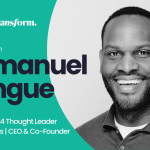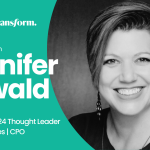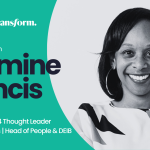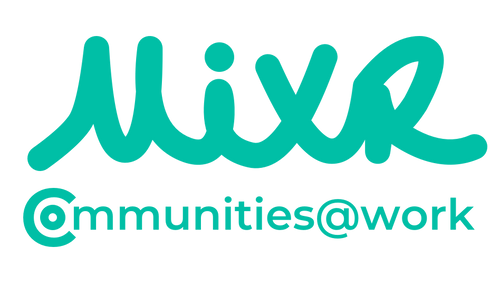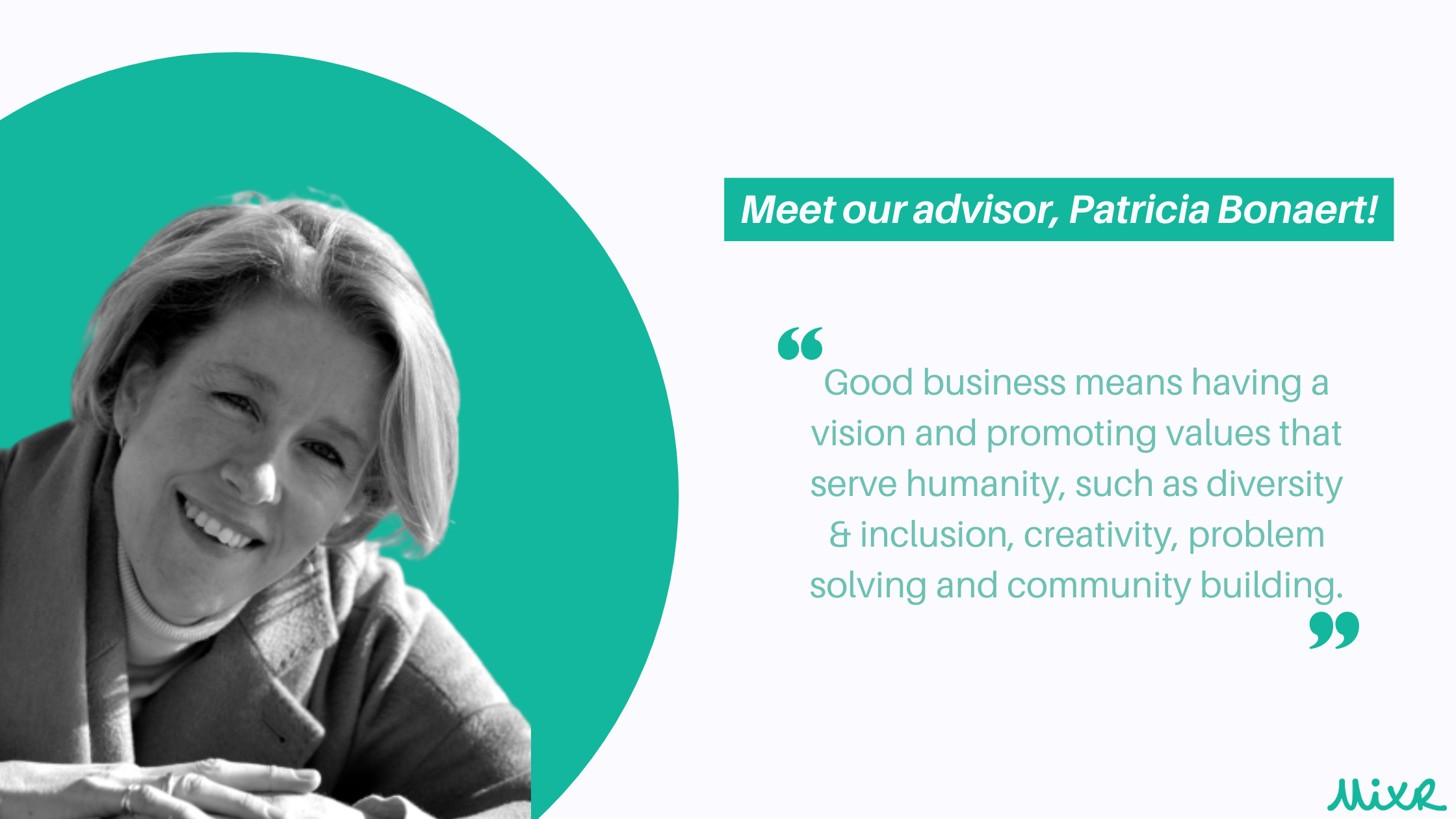
In this week’s edition of our People Spotlight blog series, we’re excited to introduce a member of our board of directors and advisors – or as we like to call them, EnlightenRs – Patricia Bonaert. As the Co-Founder and Managing Partner of Expatkit, she provides support for families undergoing international transitions, with a focus on creating resiliency for all family members. As a very active YPO spouse, Patricia has held many leadership roles in the organization to create programs around empowerment. She is a strong advocate for the power of communities as a way to connect people around shared interests, at work and beyond.
The following is a Q&A with Patricia about her time as a panelist at the Horaris Extraordinary Meeting, where she discussed our changing needs for fulfillment. Read on to learn more about her key takeaways from the experience, as well as her thoughts on the pandemic, purposeful business and more.
What are your key takeaways and learnings from the event?
This year’s meeting was held virtually over one day, instead of a few, so the schedule was jam packed. Still, I was able to attend many different presentations and hear many perspectives - from heads of state to business leaders. One thing is clear: something in our system is broken. Everyone is talking about the need to respect stakeholders, build more inclusive leadership and restore trust. Instead, we’re seeing high levels of polarization across the board, selfish attitudes and lack of thought leadership in business and politics.
A couple of talks in particular caught my attention. Firstly, Rania Al-Mashat, Egyptian Minister of International Cooperation, discussed nurturing inclusive leadership. She noted that the principles of success could be summarized by 4 Cs: competence, connection, confidence and charm. I would even argue there is a 5th C: creativity. Another talk that resonated with me was Martin Wolf’s, Chief Economics Editor, Financial Times, keynote on the need to act and think as citizens. He called for business leaders to recognize their responsibility to shape the world, protect democracy from the power of money and business, and asked them to focus on human aspects when doing business. Finally, Verizon CEO, Hans Vestberg, enlightened us on business-led solutions for changing worlds. He called for us to look at business as a way to create growth, which then nurtures future growth in our communities.
The theme of your panel “the changing needs for fulfillment” is very timely for us all. How have you been staying fulfilled during these times? What tips do you have for others looking to find fulfillment and achieve balance during this tumultuous period?
All of my fellow panelists stated that they felt ‘out of balance’ recently, so it was interesting to hear how each was coping with their different lives and challenges. I continue to play with the words Co-VID and Co-VOID. Covid-19 has created an immense void and emptiness in each of our lives and the best way to confront this is through Co-LLABORATION, Co-CREATION and Co-WORKING.
I like to think “the only way out is in.” My family and I have been taking this to heart and working on re-centering. Whether it is eating healthier, doing sports together, meditation or working on a common family project, all of these help us find fulfillment. We have learned to listen to each other like never before, and build on each other’s strengths and weaknesses.
Businesses play such a large role in our lives and in our communities. How do you see them contributing to this quest for fulfillment?
I’d have to agree with what Hans Vestberg discussed during his talk. Good business nurtures future growth. Good business means having a vision and promoting values that serve humanity, such as diversity & inclusion, creativity, problem solving and community building. If we want to be fulfilled, we must embrace this vision, and strive to create businesses and make products that add value to today’s and tomorrow’s world. In doing so, individuals themselves will also find a sense of gratification, fulfillment and satisfaction. Experiencing these feelings at work will give individuals the willingness to feel them in other areas of their lives, such as in their families and relationships.
For instance, millennials and Gen-Z are entering the workforce in droves and they’re seeking workplaces that have a purpose. This is pushing businesses to re-think and re-focus their goals so that they can make an impact and contribute to making the world a better place. Companies must be sure to align their messages and their actions - give these generations responsibility, all the while making sure they are being accountable. The more this happens, the more this sense of purpose and fulfillment will carry over into other aspects of our lives and communities.
Covid-19 obviously has a tremendous impact on us, and has changed the way we live our day to day lives. Now, imagine we are in October 2025 - what negative impacts do you foresee this crisis has caused in the long-run? Did it in any way alter what it means to be human for you?
Technology is everywhere and is becoming an increasingly important part of our lives. I see this as a double edged sword. From a macro point of view, this is a threat to democracy. We are losing sight of what’s factual and what’s not. We no longer listen to the experts. Instead, the loudest people now have the most impactful voices - despite not always having the clearest insights. Our world is becoming polarized in all aspects - from politics, to health, to education. Everything is a source of discussion and debate, leading to more violence and non-communication in our human interactions. There is also an increased divide between socio-economic classes as a result of the disparities in access to technology, healthcare and a safe environment. From a micro point of view, technology is dehumanizing us. Despite being so connected, we feel increasingly lonely and isolated behind our screens.
I’m afraid that we are going into an apathetic state where we take all that we have built in our world for granted, and forget to fight for our future. Technology has caused increased levels of de-synchronization. In other words, we’re used to communicating through a device, which is affecting our ability to be fully synchronized with one another. And now, the Covid-19 crisis is accelerating this. We’re beginning to lose interest in what’s happening on a larger scale, in our communities and on our planet - moving to an individualistic outlook, and lacking compassion for one another. If we continue on this path, large organizations and politicians that do not have our best interests at heart will take control and begin to impose measures on us.
In terms of how this could affect what it means to be human, we’ll lose our freedom, everything will be planned and constrained - reducing our spontaneity to connect, create, innovate and fully embrace the values we are fighting for. It is important to never take these for granted, appreciate our freedoms, and truly understand how losing them could change us as humans in our relationships, daily activities and projects.
Back to October 2025, are there any positive effects from Covid and confinement that you can think of? Any important personal insights ?
It’s always great to end on a positive note. I believe we’re at a shifting point. We have been used to organizing our lives around work, and now comes a time where we can organize our lives around what really matters to us: our families, close friends and relationships. We’re realizing that we can be happy with less, and are concentrating on cutting out aspects of our lives that act as ‘noise’ and don’t leave us feeling fulfilled. Like I said earlier, “the only way out is in” and during these times I think many of us are reverting back to our cores and re-centering in order to nourish and fulfill ourselves.
In terms of technology, I mentioned some of the negative impacts, but let’s focus on the positives: the technology for good, which is what MixR does. Technology for good has the purpose to protect humanity and the environment. I encourage investors and users to carefully analyze the technology they use and/or are investing in, and consider the values they are defending.
In Belgium, we have a saying that says “l’union fait la force” which translates to “unity is strength.” In the next five years, we can co-create a bigger purpose by being resilient, innovative and leveraging everyone’s strengths and weaknesses. We should be able to look back on the Covid-19 crisis and see it as a great opportunity to shift our focuses for the better. Let’s, pause, think, and take time to refocus on what matters, why it matters and let’s define our collective purpose.
We hope you enjoyed this Q&A with Patricia Bonaert. Stay tuned in the coming weeks for more insights from across our team. In the meantime, discover how MixR can help you achieve your community-building goals.




